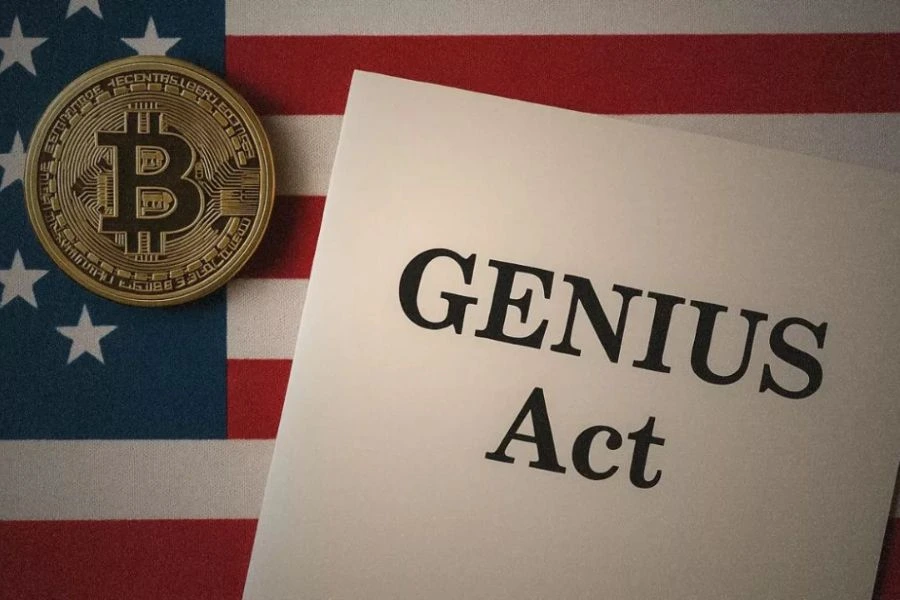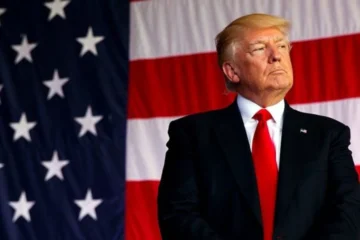U.S. crypto regulation has long been a mess. One agency says this, another sues that, and in the middle of it all, investors and builders are left guessing. That changed — at least on paper — with the introduction of the GENIUS Act, signed into law by President Trump on July 18, 2025.
Table of Contents
What Is the GENIUS Act and Why Does It Matter?
Short for “Government-Endorsed National Infrastructure for United Stablecoins” (yes, someone in D.C. wanted that acronym), the GENIUS Act lays out the first federal framework for stablecoins. It sets standards for reserve backing, audits, and licensing, trying to make sure these digital dollars are actually as “stable” as they claim.
More importantly, it signals a shift. For years, stablecoins operated in a grey zone. Now, they’re being welcomed—regulated, but welcomed into the U.S. financial system.
The CLARITY Act: Some Regulatory Sense in Crypto?
Right behind the GENIUS Act came the CLARITY Act, another long-overdue piece of legislation that finally answers the crypto world’s favorite question: “Is this token a security or a commodity?”
The CLARITY Act draws the line between the SEC (securities) and the CFTC (commodities), ending the constant turf war between regulators. This means crypto projects can finally know who’s in charge — and what rules they’re supposed to follow.
Will it solve all problems overnight? Of course not. But it’s a massive step forward for U.S. crypto regulation — one that could encourage more developers to build at home instead of fleeing to Singapore, Dubai, or wherever the SEC hasn’t thrown a lawsuit yet.
Trump’s Strategic Bitcoin Reserve: A Game-Changer or Gimmick?
Here’s where things go from “surprising” to “wait, what?”
In a move that stunned both Wall Street and Washington, Trump announced the formation of a U.S. Strategic Bitcoin Reserve. Instead of buying Bitcoin with taxpayer dollars, the reserve will be funded using crypto seized in government enforcement actions — a growing pile thanks to years of DOJ crypto crackdowns.
The goal? According to the administration, hedge against dollar debasement, support the domestic crypto economy, and “reassert American dominance in digital finance.”
Also Read: Crypto Exchange CoinDCX Suffers $44 Million Hack — Is Your Crypto Safe?
The timing couldn’t be more deliberate — right after the GENIUS and CLARITY Acts, and just before a massive crypto summit hosted at the White House.
Game-changer or gimmick? It depends on who you ask. But the market took it as bullish.
Market Reactions: Bitcoin, Altcoins, and a $4 Trillion Surge
The crypto market didn’t just like the news — it exploded.
- Bitcoin surged past $120,000, hitting a new all-time high.
- The global crypto market cap blew past $4 trillion, led by massive rallies in Ethereum, Solana, and yes — even meme coins.
- U.S.-based exchanges like Coinbase and Kraken saw record inflows.
- Stablecoin volume hit all-time highs, especially among those compliant with the GENIUS Act.
This wasn’t just optimism — it was validation. For the first time, a U.S. administration not only embraced crypto but laid out a legal foundation for it to grow.
The Trump Crypto Ties: Personal Gains or National Strategy?
Of course, no Trump crypto story is complete without a little controversy.
Critics point out that Trump has personal holdings in crypto, including the meme coin $TRUMP, several stablecoin ventures linked to his family, and reported exposure to Ethereum-based DeFi projects. There are allegations that some of these laws and market surges have directly benefited his portfolio.
While nothing illegal has been proven, the optics are murky. It’s not a great look when a sitting president signs pro-crypto legislation while watching his bags pump 60% overnight.
Supporters, meanwhile, argue that Trump is doing what any modern leader should: embracing innovation, bringing clarity to markets, and positioning the U.S. as a global crypto leader. The fact that he benefits? Just a bonus — or so they claim.
How This Shapes the U.S. Crypto Future
Love him or hate him, Trump just rewrote the crypto playbook.
With clear regulations, a government-backed Bitcoin reserve, and active engagement from industry leaders, the U.S. is suddenly not just relevant in crypto — it’s leading.
This could attract startups, institutional capital, and global talent. It might also put pressure on other governments to keep up, from the EU’s MiCA regulations to Hong Kong’s crypto-friendly pivot.
Also Read: What Is Staking in Crypto? Explained Simply
It’s a sharp U-turn from past years of crackdowns, lawsuits, and regulatory confusion. And for now, the market is loving it.
Winners, Losers, and What to Watch Next
Winners:
- U.S.-based crypto exchanges
- Bitcoin & stablecoin holders
- Pro-regulation crypto startups
- Trump-branded coins (for better or worse)
Losers:
- Anti-crypto regulators
- Offshore exchanges avoiding compliance
- Any political rivals hoping to paint crypto as shady
What to watch next?
- Will the SEC and CFTC play nice under the new rules?
- How much Bitcoin will the U.S. accumulate?
- Will other countries follow the U.S. example?
- And will Trump’s crypto ties bring future scrutiny?
One thing is clear: crypto is now political — and profitable. Whether that’s a good thing long-term is still up for debate. But in the short term, welcome to the new era of Bitcoin, bureaucracy, and bold moves from the White House.
Reference: https://abcnews.go.com/Business/genius-act-crypto-regulation-bill/story?id=121981442




